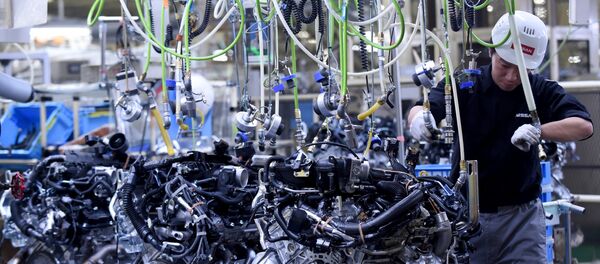In an interview with Sputnik Japan, psychologist and director of the Institute of Applied Psychology at the Higher School of Economics, Guli Bazarova, commented on the issue and explained why such developed and high-tech country like Japan can't cope with workaholism.
According to Bazarova, the main reason lies in Japan's cultural traditions based mainly on the mentality of obedience.
"There is a great fear to make a mistake, to fail. The Japanese are working at their best and can't relax. The so-called Japanese technology is improving every day. And a person understands that if he or she does something wrong, it will affect the entire company. It is not even the question of his or her personal motivation. An employee realizes that he or she is a link in a whole system and therefore can't fall out. At the same time, this person risks everything: at stake is his or her career, social status and even family," the expert explained.
Following the incident, the Dentsu company has become subject to various inspections, during which it became clear that similar incidents have occurred in the past. In Japan, there is even a special term "karoshi" which can be literally translated as "overwork death".
Japan is one of the few countries that collect special statistics on "overwork death". The main medical cause of such death is a heart attack or a stroke that results from the stress.
"Why did the Japanese girl jump out of the window? For me the reason is obvious: the loss of meaning in life. This diagnosis is common for those who completely devote themselves to their career. Creative people risk less as their profession implies multifaceted self-realization. But if a person performs routine work, the risk of emotional burnout is very high. Especially if the stress at work is associated with a high level of responsibility," Bazarova stated.
According to the expert, workaholism is typical not only for Japan, but also for other countries around the world, including Russia.
"Previously, this trend in our country has been increasingly associated with craving for a better life. After the dissolution of the Soviet Union, the country has become more open, and people wanted to have more benefits. Thus people worked hard to pay for a good apartment, an expensive car, a summer house, travels. But this kind of workaholism had its limitations. Upon reaching certain goals, people could stop, reducing the level of their activity. Today, a new kind of workaholism associated with the development of business schools […] resulted in a fashion trend for high-quality business. A person realizes that he or she can do more and work almost 24 hours a day," the expert stated.
According to Bazarova, the emotional needs of a human being evolve with age, and if the person can't find the answers, it leads to a serious personal crisis and results in severe emotional burnout.
On the other hand, those who start their own business are less vulnerable to this tendency, since they have a different kind of motivation connected with the future of their children, the expert argued, adding that for businessmen it is emotionally easier to cope with the stress.




